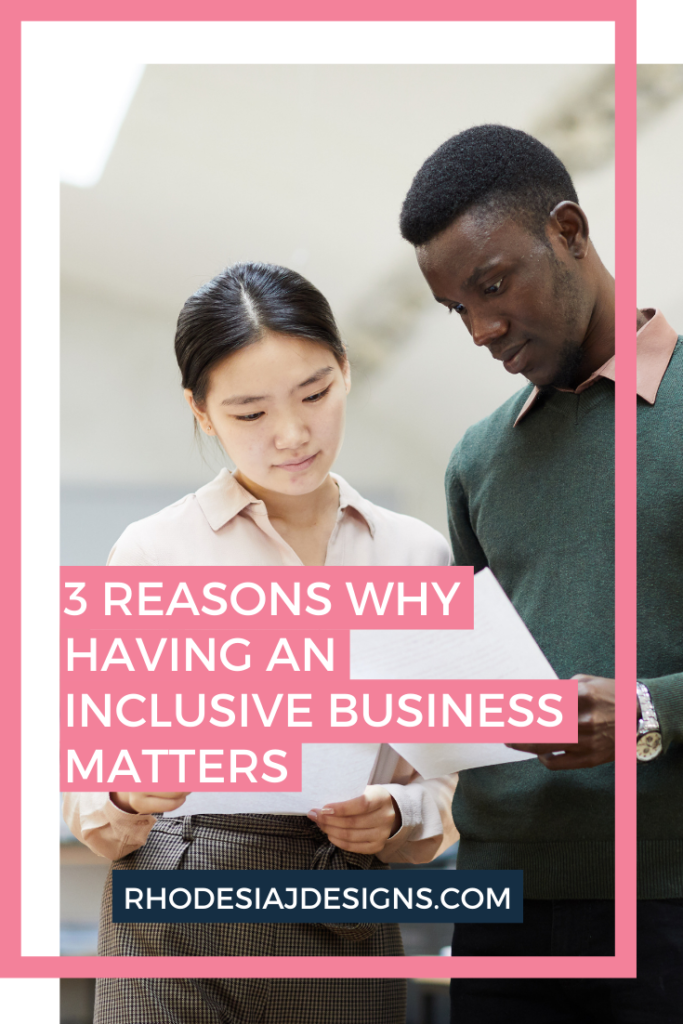We’re all familiar with certain “isms” like racism and sexism. But did you know there are actually thousands of “isms” that represent a multitude of different personal, interpersonal, institutional, and cultural forms of oppression? These can and do often lead to various forms of stereotyping, prejudice, and discrimination.
At their core, “isms” represent oppressive systems that have structures that privilege or bolster some groups of people at the expense of other groups of people.
As a leader and small business owner it’s important to understand that inclusivity, diversity, and equality are not limited to race and gender.
In a work environment, stereotyping and prejudice can create low morale and retention, be the source of poor productivity, and cause lack of communication and collaboration among co-workers and leadership.
The following is a list of just some of the “isms” and forms of discrimination and microaggressions that accompany them, in a small business environment:
Ableism
Discrimination against people with disabilities.

- Unwelcome or unsolicited assistance—often includes touching and invading personal space.
- Mocking or dismissing someone who suffers from a non-visible or non-obvious disability—saying things like “They’re just always tired.”
- Websites that are not ADA compliant.
Ageism
Systematic discrimination against persons of an older age group.

- Getting turned down for a promotion; being encouraged to retire.
- Hearing-related comments or insults.
- Only featuring photos of young people in marketing
Anti-Semitism
Systematic prejudice and discrimination against Jewish people.
- “Jokes” about certain career choices or strengths/weaknesses.
- Inappropriate comments about clothing and head coverings.
- Insulting commentary on food choices.
Classism
Systematic prejudice and discrimination based on social or economic class.

- Degrading or humiliating comments based on clothing or appearance.
- Being passed up for management or higher paying roles.
- Negative assumptions about home life and health care practices.
Cisgenderism/transphobia
Systematic discrimination against transgender people.
- Not acknowledging or refusing to use preferred pronouns.
- Being passed up for promotions.
- Lack of established workplace policies to address safety and discrimination.
Colorism/shadeism
Systematic prejudice or discrimination in which people are treated differently based on favoring lighter skin color.

- Being ostracized or excluded from meetings or team outings.
- Paid lower wages or delegated to less desired roles.
- Negative assumptions about education level or being less skilled.
Ethnocentrism
The belief in the inherent superiority of one’s own ethnic group or culture.

- Inappropriate comments or “jokes” about accents or pronunciations.
- Mocked for food choices or ways of eating food (expecting an Asian person to use chopsticks for example, or an Indian person to eat potent, spicy foods).
- Asking where someone is “really from”
Heterosexism
Systematic prejudiced attitude or discriminatory practices against gay and queer-identified people.
- Insults or comments about being “feminine” or “butch.”
- More desirable jobs given to those who identify as straight.
- Ostracized or being excluded from in-or outside of work gatherings.
Racism
Systematic prejudice or discrimination based on race; specifically, the idea that whiteness is superior and therefore has the right to dominate other races.

- Disparate treatment; applying the rules differently.
- Met with more criticism and judgement on work quality and output.
- Being subjected to racial slurs or “jokes” about home life, food choices, and personal interests.
Sexism
Systematic prejudice, stereotyping, or discrimination against women on the basis of gender. How it can show up in the workplace:
- Not being paid the same as male coworkers.
- Sexual harassment (making comments on one’s body or appearance, unwelcome touching, staring, inappropriate questions).
- Perception of being less qualified or less able than male counterparts.
Sizeism
Systematic prejudice, stereotyping, or discrimination based on a person’s size, most often in terms of weight. How it can show up in the workplace:
- Unsolicited health, lifestyle, and diet advice.
- Being seen as sloppy, unkempt, or undisciplined.
- Being paid lower wages due to perception of laziness or being less competent.
These stereotypes are often taught to us—starting at a young age—through the media, our parents, the entertainment industry, friends, and classmates. The fact of the matter is, “many people face hardships in their lives and workplaces not because they lack talent and skills, but because others don’t make the effort to really see them or allow them to succeed.” – source
If a business, large or small, is experiencing any “isms” then it’s everyone’s loss. It’s time to take a closer look at your small business practices to ensure that your values around diversity, inclusivity, and equality consider all of the “isms,” and not just some.






